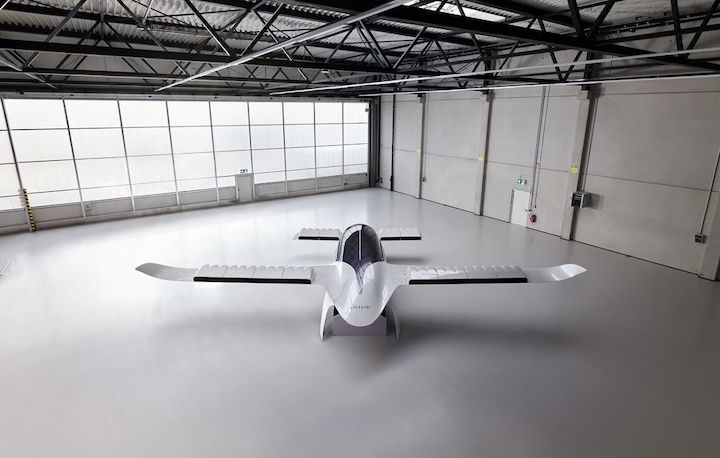Flying-taxi startup Lilium sees opening to grab airline orders from rivals
German air-taxi startup Lilium GmbH sees potential to grab airline orders from competitors as the race to launch electric vertical takeoff and landing craft heats up.
Uncertainty over achieving certification for eVTOLs means those deals inked so far shouldn’t be seen as final, Vice Chairman Alexander Asseily said in an interview at the Dubai Airshow. The ability to quickly ramp up production will also determine which of the leading startups ultimately prevails, he said.
“There’s going to be a massive shortage of supply even with multiple players with certified aircraft,” Asseily said. “On top of that, it’s not clear that any of the big players, any of the big commercial airlines, will lock themselves in needlessly to one player or another.”
While Lilium has agreed to build a flying-taxi network for Brazilian carrier Azul SA, U.K. rival Vertical Aerospace Group Ltd. has accords with American Airlines Group Inc., Japan Airlines Co. and Virgin Atlantic Airways Ltd. U.S.-based Archer Aviation has garnered deals with United Airlines Holdings Inc., while Joby Aviation Inc. is working with JetBlue Airways Corp.

As important as it is to have orders, “it doesn’t matter if you can’t ship an aircraft,” Asseily said. “As excited as we are about all the deals we’ve announced, the absolute focus right now is the development program.”
Munich-based Lilium, which was founded in 2015, is aiming for service entry in 2024, putting it among the pioneers in the sector. The company’s seven-seater model uniquely uses 36 electric motors powering mini jets rather than propellers and had its first full-scale, full-weight test flight in 2019.
In addition to targeting commuter routes for the wealthy, such as New York to the Hamptons or Miami to Palm Beach, Lilium is looking at opportunities to serve isolated communities including in locations such as Oregon, Asseily said.
Lilium’s business model envisages providing its own pay-per-ride service rather than selling the craft to other operators, either as a straight commercial deal or in conjunction with local partners. Discussions are underway with authorities in Europe, the Middle East and Southeast Asia, as well as the U.S.
Similar Stories

First JetBlue flights from Manchester, New Hampshire take off today
View Article
Alaska Air Group reports fourth quarter and full year 2024 results
View Article
Cathay Pacific and SITA agree to expand network connectivity across 51 global airports
View Article
American Airlines reports fourth-quarter and full-year 2024 financial results
View Article
ECS Group partners with CargoAi to digitalize manual email quotation processes with their CargoCoPilot API
View Article
Chapman Freeborn restructure to expand European cargo operations
View ArticleGet the most up-to-date trending news!
SubscribeIndustry updates and weekly newsletter direct to your inbox!





